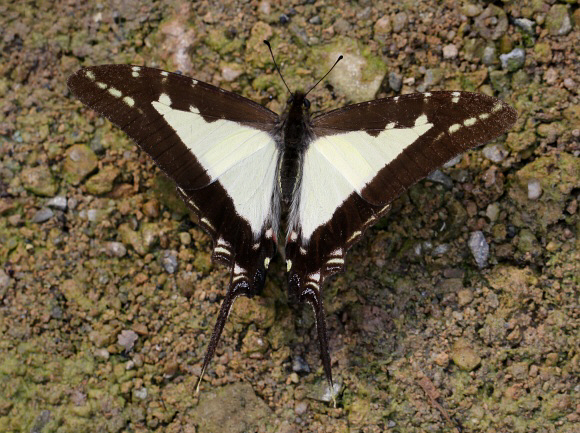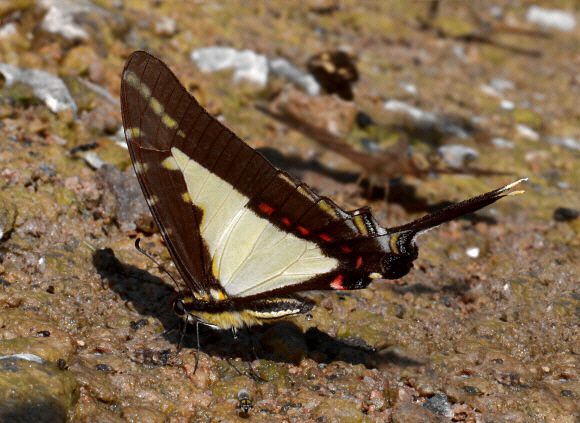
Introduction
The 13 species in the genus Neographium are characterised by having translucent white or yellowish wings, marked with bands or stripes of black or dark brown. The forewings are decidedly triangular in shape and the hindwings adorned with a single long sword-like tail. The bodies are relatively short and the antennal tips strongly recurved.
Neographium dioxippus can be confused with the closely related thyastes and calliste, but can be distinguished from them by the broader borders to the hindwings, and by the unbroken dark brown bar along the costa of the forewings. It can also be confused with leucaspis, but on the latter the sub-apical bar is contiguous rather than broken, and extends all the way to the inner margin.
N. dioxippus occurs from Mexico to Peru.
Habitats
This species inhabits undisturbed rainforests at elevations from about 200-800m.
Lifecycle
To be completed.
Adult behaviour
Swordtails such as Neographium dioxippus are migratory in behaviour, following river courses as they travel. Males can be found settled on river beaches, filter-feeding on dissolved minerals by continually pumping water though their bodies. This species, unlike the related Protographium and Protesilaus swordtails, is usually found singly.

